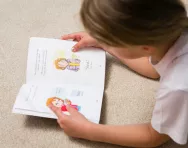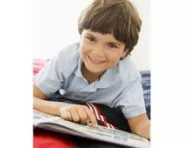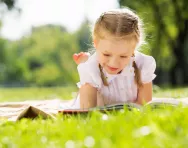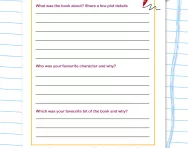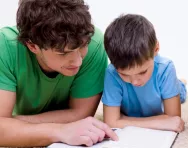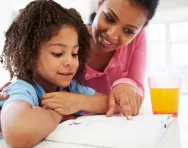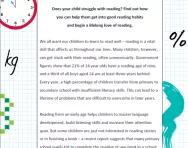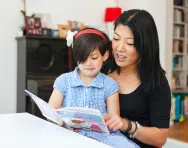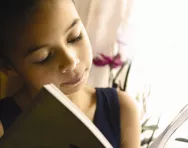TheSchoolRun.com closure date
As we informed you a few months ago, TheSchoolRun has had to make the difficult decision to close due to financial pressures and the company has now ceased trading. We had hoped to keep our content available through a partnership with another educational provider, but this provider has since withdrawn from the agreement.
As a result, we now have to permanently close TheSchoolRun.com. However, to give subscribers time to download any content they’d like to keep, we will keep the website open until 31st July 2025. After this date, the site will be taken down and there will be no further access to any resources. We strongly encourage you to download and save any resources you think you may want to use in the future.
In particular, we suggest downloading:
- Learning packs
- All the worksheets from the 11+ programme, if you are following this with your child
- Complete Learning Journey programmes (the packs below include all 40 worksheets for each programme)
You should already have received 16 primary school eBooks (worth £108.84) to download and keep. If you haven’t received these, please contact us at [email protected] before 31st July 2025, and we will send them to you.
We are very sorry that there is no way to continue offering access to resources and sincerely apologise for the inconvenience caused.
What is a free reader?
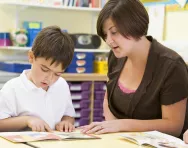
In the first few years of primary school, listening to your child read is a nightly task as they plough through the levels of their school reading scheme.
But at some point, they reach the major milestone of moving on from Biff, Chip and Kipper to books of their own choosing. This is known as becoming a free reader, and is an exciting new step for your child – and for you, too.
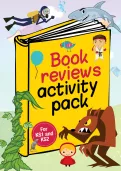
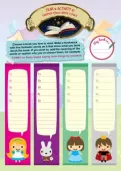
Claim A FREE Book Reviews Activity Pack!
- A huge collection of creative writing & reading comprehension resources
- Explore texts, deepen understanding, share opinions
- For Year 1 to Year 6
What is a free reader?
The term ‘free reader’ usually refers to a child who has finished the reading scheme used in their school, and is now allowed to choose from a wider selection of non-scheme books.
They won’t necessarily have read every single book in the reading scheme – it’s common to skip titles or even whole stages as they progress – but will have worked through the levels to a point where their teacher feels their reading skills and comprehension are solid.
At this stage, they’re able to tackle longer and more complex books, both fiction and non-fiction.
When should your child become a free reader?
There’s no universally recognised point at which a child becomes a free reader. It will depend on their own reading level and the school’s practices. For example:
- Some schools allow children to become free readers once they have finished the foundation levels of a reading scheme (such as Oxford Reading Tree stage 9).
- Some require them to have finished the entire reading scheme, including the upper levels (for example, up to and including Oxford Reading Tree stage 16).
- Some allow children to combine reading schemes and free reading, choosing one reading scheme book and one title of their own choice at a time.
Children need to have demonstrated a good level of competence in both decoding and comprehension before they can move onto free reading. This usually equates to Oxford Reading Tree level 9 or thereabouts (although, as explained above, some schools continue to follow the schemes into their upper levels). Most children reach this stage around the end of Key Stage 1 or beginning of Key Stage 2, although some will hit it sooner or later.
Some schools will move children onto free reading whenever they feel they’re ready, regardless of their age. Others have different policies, such as not letting children become free readers before Key Stage 2, no matter how competent they are.
Because there are no hard and fast rules, it’s important to find out how children become free readers at your child’s school, and not compare them with children in other schools.
What can your child read now they’re a free reader?
Just as the definition of a free reader varies, there are no set rules about what children can and should read once they reach this stage. They’re likely to be reading longer, more complex chapter books, but these could vary from Rainbow Magic to Harry Potter.
The National Curriculum does state that Key Stage 2 children need to read from a variety of texts and genres, including fiction, poetry, plays, non-fiction and reference books. Some of these will be tackled in class, but the selection of free reading books that they can choose from should reflect the breadth of material they’re expected to be tackling.
Can they choose their own books?
Again, this varies. Some schools are happy for children to read whatever they like, and to choose titles from their own bookshelves or the public library. Others ask them to choose their books from a selection within the classroom (perhaps linked to the topic they’re working on), or from the school library.
Children are usually taught the skills they need to choose a book they’ll enjoy, for example:
- Looking at the front cover
- Reading the blurb
- Reading a small section of text.
In the initial stages of free reading, an adult will usually help them to choose books that are of the right level, but as they get better at self-selecting, their teacher may just ask to see the book before giving them the go-ahead to read it.
Will someone still listen to your child read at school?
There’s no statutory requirement for teachers, Teaching Assistants or helpers to hear your child read at school, and it does tend to happen less in Key Stage 2 as more children move onto free reading. In some schools, children will still be heard regularly, but in others, it may be infrequent – maybe only once or twice a term.
Teachers will still keep an eye on your child’s reading progress, however, through activities such as guided reading (reading in small groups of a similar ability), using reference books in class and reading comprehension. If you’re worried that your child isn’t being listened to enough, have a word with their teacher.
Should you still hear them read at home?
You might breathe a sigh of relief at no longer having to listen to reading scheme books, but it’s important that you do still hear your child read at home, even if it's only a page or two at a time.
Listening to your child read helps you ensure that they’re not glossing over new or tricky words, and that they understand what they’re reading. You can establish that by asking them questions such as:
- What kind of book is this?
- What has happened so far?
- What do you think might happen next?
- Where is the story set?
- Who is your favourite character, and why?
- How would you like the story to end?
- Can you explain what this word means?
- Who would you recommend this book to?
Some schools also ask children to write a short book review once they’ve finished a title to show that they’ve understood the story before they move into their next choice.
